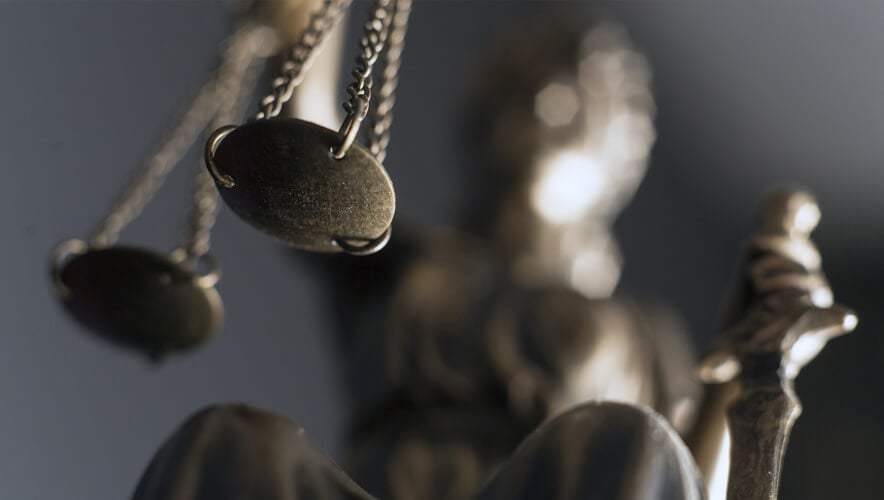Legal Report: Former London Police Officer Sentenced to Prison for Abusing Women and His Authority
Judicial Decisions
United Kingdom
Sexual violence. David Carrick was sentenced to serve more than 30 years in prison for using his position as a London Metropolitan police officer to rape and abuse multiple women over the course of more than 17 years.
Carrick admitted to at least 71 instances of sexual violence against 12 victims, according to court documents. Carrick started abusing women “almost immediately” after becoming a police constable, his crimes including indecent assault, coercive and controlling behavior, false imprisonment, and rape.
In some interactions, Carrick used his position as a policeman to quickly gain women’s trust before abusing them, court documents detailed.
“Behind a public appearance of propriety and trustworthiness, you took monstrous advantage of women drawn into intimate relationships with you,” Justice Parmjit Kaur Cheema-Grubb, DBE, wrote in her sentencing remarks. “…Some you specifically reassured, tricked, or intimidated, abusing the trust that the public vest in police officers.”
Cheema-Grubb sentenced Carrick to 36 consecutive life sentences and ordered that he would not be eligible for parole until serving 30 years and 239 days. (Rex v. David Carrick, Southwark Crown Court, Sentencing Remarks, 2023)
United States
Human remains fraud. A U.S. district court in Colorado sentenced two women to more than 15 years in prison for their involvement in illegally selling body parts and defrauding clients. Megan Hess received a 20-year prison sentence after pleading guilty to mail fraud, as part of a plea agreement. Shirley Koch—mother to Hess—also pled guilty to mail fraud and was sentenced to 15 years in prison.
In 2009, Hess created Sunset Mesa Funeral Foundation, a nonprofit corporation that claimed to help families that lacked resources for funeral or cremation services. However, under a trade name for the foundation, the organization’s “primary source of income was harvesting and marketing for sale purportedly donated human remains, such as heads, torsos, arms, legs, or entire human bodies, to customers who used the remains for scientific, medical, or educational purposes,” according to court documents.
According to the U.S. Department of Justice (DOJ), the women did not follow the wishes of the deceased’s families, an in dozens of instances they either did not discuss or did not obtain proper authorization to sell the bodies to a third party. The pair also delivered the wrong cremated remains to families.
Altogether, Hess and Koch dissected and sold the corpses of 560 people without permission from their respective families. (United States v. Megan Hess, et al., U.S. District Court for the District of Colorado, No. 20-cr-00098-GPG, 2023)
Sex trafficking. Lawrence Ray was found guilty of sex trafficking and racketeering.
Ray—who was found guilty of 15 charges, including extortion, forced labor, and sex trafficking—was sentenced to serve 60 years in a federal prison.
In 2010, Ray moved into on-campus housing with his daughter and her roommates, who were all students at Sarah Lawrence College in New York state. Ray used his proximity and charm to groom and eventually control several young adults, subjecting them to mental, physical, emotional, and sexual abuse. (United States v. Lawrence Ray, U.S. District Court for the Southern District of New York, No. 20-cr-110-LJL, 2023)
Legislation
U.S. States
Mobile security. Governors in two U.S. states recently signed executive orders banning the social media app TikTok from state-issued devices.
Wisconsin Governor Tony Evers signed an executive order (EO 184) in January, banning the app from such devices, plus other foreign software, technologies, or vendors “that could pose potential cybersecurity threats,” according to the press release. The order also calls on the state’s Department of Administration’s Division of Enterprise Technology to continually identify and consider elements or parties that might present a risk to state information systems or devices.
In North Carolina, Governor Roy Cooper also signed an executive order in January that prohibited the use of TikTok, WeChat, and other certain applications and websites from state devices, including mobile phones and computers. EO 276 ordered state Chief Information Officer and the Department of Information Technology to craft a policy regarding these and any potential future applications that might pose a threat to state systems.
“Cybersecurity professionals have identified TikTok and WeChat as high-risk applications due to their lack of sufficient privacy controls and connections to countries that sponsor or support cyberattacks against the United States,” the press release said.
Regulations
France
Privacy. France’s Commission Nationale de l’Informatique et des Libertés (CNIL) fined social media app TikTok €5 million for failing to appropriately handle cookies and failure to inform users about the reasons for them.
The CNIL—France’s data protection regulator—conducted several online investigations into the app’s website between May 2020 and June 2022. Regulators determined that the company violated parts of the French Data Protection Act and levied the monetary fine based on the number of people impacted by the issue.
An investigation conducted during June 2021 revealed that while TikTok UK and TikTok Ireland offered an option to accept cookies, there was no equivalent solution for Internet users to decline the use of cookies. “Several clicks were required to refuse all cookies, as opposed to just one to accept them,” the CNIL said in a press release. Also, the app did not inform users about the exact reasons for the cookies.
What to Watch
When security issues intersect with the courts, laws, or regulations, Security Management keeps an eye on them. Here are some of the developing stories that we are following.
Judicial Decisions
Celebrity protection. Singer Billie Eilish has filed a restraining order against a man accused of breaking into her parents’ home.
Discrimination. A jury found that Rose Wakefield, who is Black, was racially discriminated against at an Oregon gas station, and she was awarded $1 million in damages.
Espionage. A former General Electric power engineer was sentenced to 24 months in prison for conspiracy to commit economic espionage, including stealing trade secrets.
Gun violence. A Newport News, Virginia, school was repeatedly warned that a 6-year-old boy was in possession of a firearm prior to a shooting.
Hate crime. A British teenager who made far-right extremist videos that influenced the Buffalo, New York, mass shooter was sentenced to 11 years and 6 months in jail.
Higher education. After a lecturer sued the Minnesota school, Hamline University walked back its comment that showing a picture of the Prophet Muhammad in an art history class was “Islamophobic.”
Insurrection. Brazil’s Supreme Court declared that Brasilia’s governor Ibaneis Rocha would be removed for 90 days over allegations of security flaws that allowed for government buildings to be invaded by supporters of former President Jair Bolsonaro.
Murder. A 15-year-old boy was found guilty of the stabbing and murder of a software engineer outside a supermarket in Redditch, England.
Police brutality. A new lawsuit alleges that Memphis, Tennessee, police officers were involved in another violent beating days before the beating and subsequent death of Tyre Nichols.
Refugee backlash. Four years after being arrested, a group of volunteers are on trial for rescuing migrants off the coast of Greece.
Security guards. Three family members were sentenced to life in prison without parole for their involvement in the shooting and death of a security guard at a Flint, Michigan, Family Dollar over the store’s face mask policy.
Subversion. Forty-seven defendants who held an election in Hong Kong are charged with subversion under China’s national security law.
Legislation
Censorship. India’s government invoked emergency laws to ban a BBC documentary about Prime Minister Narendra Modi’s role in the violence that occurred during the 2002 Gujarat riots.
Discrimination. The Dutch Senate approved an amendment to the country’s constitution that specifically bans discrimination based on sexual orientation or disability.
Medical device security. The omnibus package passed in December 2022 granted the U.S. Food and Drug Administration new authority over medical device requirements applied to manufacturers.
State of emergency. The Honduran government extended its state of emergency declaration for 45 days to various parts of the nation as part of an effort to combat criminal gangs.
Regulations
COVID-19. A new California Occupational Safety and Health Administration (OSHA) regulation regarding COVID-19 has taken effect—specifically the relaxing or lessening of pandemic restrictions in work environments.
Intellectual property. China’s Xiaomi levied a 1 million yuan fine on a supplier after early design drafts of an upcoming car model were leaked.
Workplace safety. OSHA cited Amazon facilities in New York for unsafe workplace conditions that posed ergonomic hazards to employees.












